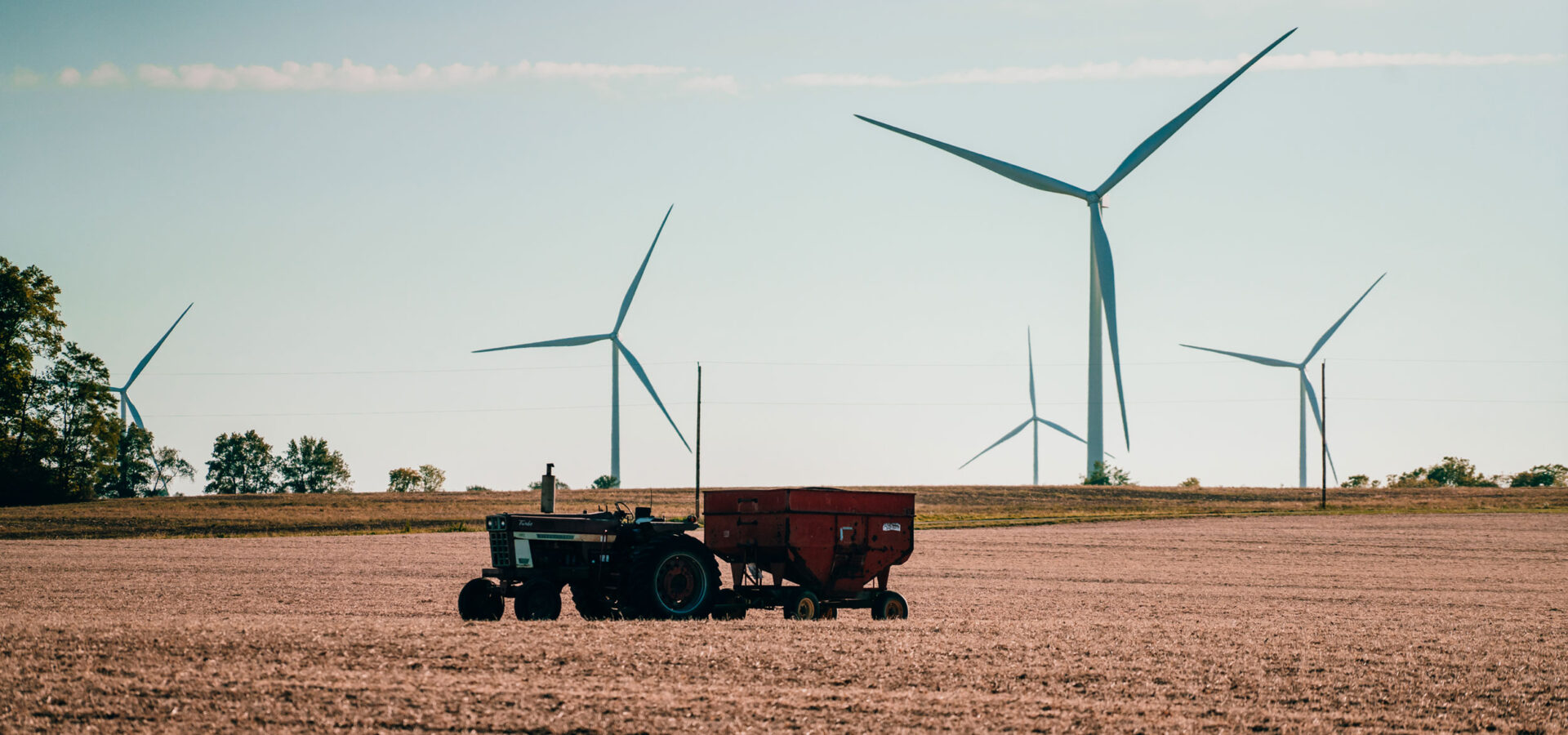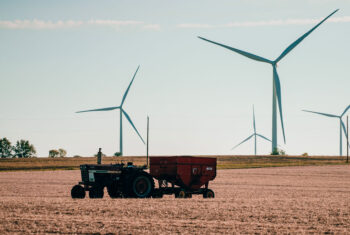How the Renewable Energy Transition Has Become a Boon for Farmers

At Scout, we work with farmers across the country to help them realize the opportunity to harvest the resource above their fields and earn a long-term, reliable income through a lease agreement for a solar or wind energy project. As we like to say, “There are yields above your fields.”
Leases Provide Generational Income and Long-Term Security
Volatile commodity prices, precipitation and temperature patterns, pests and pathogens, changing trade relations, and other unpredictable realities can cause agricultural profits to fluctuate regularly. Hosting a renewable energy project alongside agricultural production can provide a steady income stream complimentary to the unpredictability of farming income. Since renewable energy projects typically operate for three decades, annual payments from a lease can last well into retirement, helping farmers mitigate against risk, and supporting the next generation to take up the family business
Wind Energy Leases Cause Little Disruption to Farming Operations
In addition to the long-term, secure income stream that a lease agreement provides, farmers leasing their land for wind energy can continue to run their farming business as the wind farm operates. Once the project is operating, a turbine and its access road would occupy less than an acre of land. Any underground cables are buried at a depth compatible with farming. Scout regularly improves existing field lanes and builds new roads to access our turbines. Landowners are welcome to use these durable, all-weather roads to move equipment in and out of their fields. On average, 98% of the land around a wind energy facility can be used for other purposes.
You’re Contributing to Positive Benefits For Your Community
While lease agreements are fantastic decisions for farmers on an individual level, our projects also provide their communities with additional tax revenue. This tax revenue can be used to fund schools, roads, and community centers, all without placing a strain on local services. For example, Scout’s 130 MW Bitter Ridge Wind Farm in Jay County, Indiana will pay $15M in local taxes over the lifespan of the project.
Scout’s projects also create jobs. A typical project generates hundreds of construction jobs as well as a number of long-term operating jobs. Labor statistics show the U.S. wind industry employs America’s veterans at a rate 67% above the national average. Additionally, landowners often spend their lease payment revenue locally, which in turn helps other local businesses including restaurants, auto and farm equipment dealers, farm service providers, and more.
As the massive growth of wind and solar energy continues in this country, more and more farmers with available land will have the opportunity to participate in and benefit from the economic opportunity created by the clean energy transition. We look forward to continuing our work maximizing these benefits to our landowner partners.


